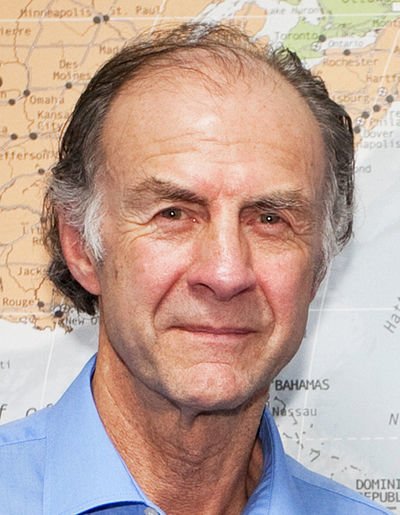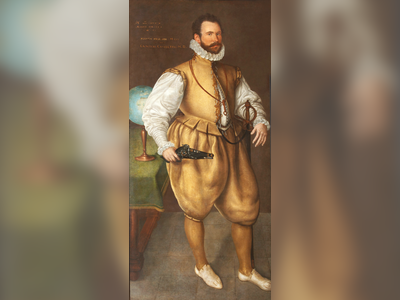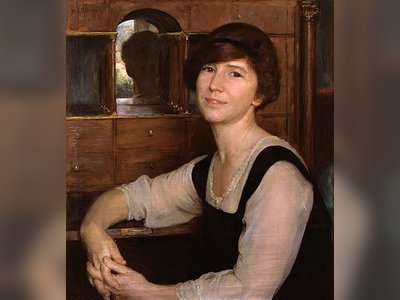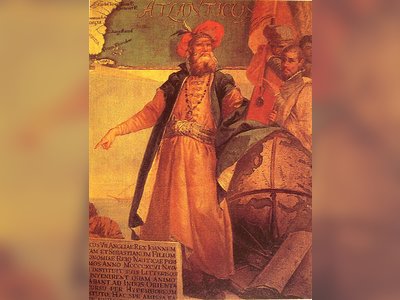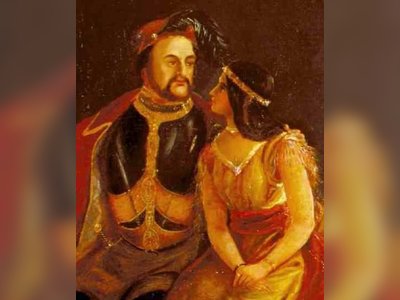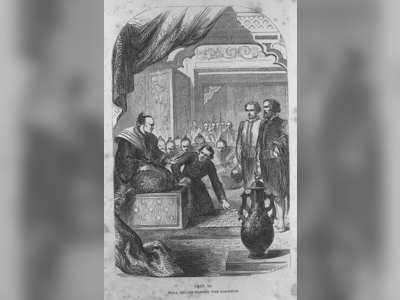British Heritage
Remember, Cherish, Learn.
beta
Ranulph Fiennes - Our Greatest Living Explorer
Contribution to British Heritage.
Sir Ranulph Fiennes, a British explorer and holder of several endurance records, has made a significant contribution to British heritage through his groundbreaking explorations and achievements. He has not only brought honor and recognition to the nation but also exemplified the spirit of adventure and determination that has been a hallmark of British explorers throughout history.
Fiennes' expeditions have taken him to the farthest corners of the Earth, including both the North and South Poles, making him the first person to reach these extreme points of our planet by surface means. His feat of completely crossing Antarctica on foot showcased not only his physical and mental fortitude but also highlighted British excellence in polar exploration.
Moreover, in 2009, at the age of 65, Fiennes achieved yet another extraordinary milestone by climbing to the summit of Mount Everest. This remarkable accomplishment not only demonstrated his indomitable spirit but also added to the rich legacy of British mountaineers who have conquered some of the world's highest peaks.
Fiennes' expeditions have not only been about personal achievement but also about pushing the boundaries of human endeavor and scientific exploration. Through his journeys, he has contributed valuable data to the fields of geography, glaciology, and climate studies. His commitment to understanding and preserving the planet's most remote and fragile regions has added to the global efforts towards environmental awareness and conservation, a cause that remains close to the hearts of many in Britain.
Sir Ranulph Fiennes' legacy is deeply etched in the annals of exploration and adventure. He has set numerous records and achieved several firsts, leaving an indelible mark on the history of polar exploration and mountaineering. As the first person to visit both poles by surface means, Fiennes broke barriers and inspired a new generation of adventurers to follow in his footsteps.
His audacious Transglobe Expedition, during which he and his team circumnavigated the world along its polar axis using surface transport only, remains an unparalleled achievement. The sheer scope and scale of this expedition are a testament to Fiennes' leadership, strategic planning, and unyielding determination.
Fiennes' contributions have been recognized not only within the United Kingdom but also on an international level. In 1984, the Guinness Book of World Records hailed him as the world's greatest living explorer, an accolade that further solidified his status as a legend in the world of exploration.
Sir Ranulph Twisleton-Wykeham-Fiennes, commonly known as Sir Ranulph Fiennes, was born on 7 March 1944 in Windsor, Berkshire. He inherited the baronetcy of Banbury at birth following the death of his father, Lieutenant-Colonel Sir Ranulph Twisleton-Wykeham-Fiennes, who served with distinction in the Royal Scots Greys during World War II.
Fiennes' early life saw him living in South Africa until the age of 12, where he attended Western Province Preparatory School and later Sandroyd School in Wiltshire before moving to Eton College for his education. Following his schooling, he joined the British Army and served for eight years, including a counter-insurgency assignment with the Sultanate of Oman's army, where he displayed exceptional bravery and was decorated for his service.
His career as an explorer and adventurer began in the 1960s, leading expeditions that included traversing the White Nile on a hovercraft and crossing Norway's Jostedalsbreen Glacier. However, it was the Transglobe Expedition between 1979 and 1982 that catapulted him to worldwide fame, solidifying his place as one of the greatest explorers in history.
Fiennes' expeditions and achievements have been chronicled in numerous books, showcasing not only his adventurous spirit but also his talent as a writer. His writing extends beyond personal narratives to biographies of explorers like Robert Falcon Scott and Ernest Shackleton, further contributing to the preservation of British exploration heritage.
Throughout his career, Fiennes faced numerous challenges, including severe frostbite during an Arctic expedition and a heart attack. Yet, his resilience and unwavering dedication to exploration allowed him to overcome these obstacles and achieve greatness.
Sir Ranulph Fiennes' passion for exploration and his extraordinary accomplishments have not only enriched British heritage but also inspired generations to pursue their dreams, discover the unknown, and contribute to the advancement of human knowledge and understanding of our planet's diverse and challenging terrains.
Fiennes' expeditions have taken him to the farthest corners of the Earth, including both the North and South Poles, making him the first person to reach these extreme points of our planet by surface means. His feat of completely crossing Antarctica on foot showcased not only his physical and mental fortitude but also highlighted British excellence in polar exploration.
Moreover, in 2009, at the age of 65, Fiennes achieved yet another extraordinary milestone by climbing to the summit of Mount Everest. This remarkable accomplishment not only demonstrated his indomitable spirit but also added to the rich legacy of British mountaineers who have conquered some of the world's highest peaks.
Fiennes' expeditions have not only been about personal achievement but also about pushing the boundaries of human endeavor and scientific exploration. Through his journeys, he has contributed valuable data to the fields of geography, glaciology, and climate studies. His commitment to understanding and preserving the planet's most remote and fragile regions has added to the global efforts towards environmental awareness and conservation, a cause that remains close to the hearts of many in Britain.
Legacy and Success
Sir Ranulph Fiennes' legacy is deeply etched in the annals of exploration and adventure. He has set numerous records and achieved several firsts, leaving an indelible mark on the history of polar exploration and mountaineering. As the first person to visit both poles by surface means, Fiennes broke barriers and inspired a new generation of adventurers to follow in his footsteps.
His audacious Transglobe Expedition, during which he and his team circumnavigated the world along its polar axis using surface transport only, remains an unparalleled achievement. The sheer scope and scale of this expedition are a testament to Fiennes' leadership, strategic planning, and unyielding determination.
Fiennes' contributions have been recognized not only within the United Kingdom but also on an international level. In 1984, the Guinness Book of World Records hailed him as the world's greatest living explorer, an accolade that further solidified his status as a legend in the world of exploration.
General Information
Sir Ranulph Twisleton-Wykeham-Fiennes, commonly known as Sir Ranulph Fiennes, was born on 7 March 1944 in Windsor, Berkshire. He inherited the baronetcy of Banbury at birth following the death of his father, Lieutenant-Colonel Sir Ranulph Twisleton-Wykeham-Fiennes, who served with distinction in the Royal Scots Greys during World War II.
Fiennes' early life saw him living in South Africa until the age of 12, where he attended Western Province Preparatory School and later Sandroyd School in Wiltshire before moving to Eton College for his education. Following his schooling, he joined the British Army and served for eight years, including a counter-insurgency assignment with the Sultanate of Oman's army, where he displayed exceptional bravery and was decorated for his service.
His career as an explorer and adventurer began in the 1960s, leading expeditions that included traversing the White Nile on a hovercraft and crossing Norway's Jostedalsbreen Glacier. However, it was the Transglobe Expedition between 1979 and 1982 that catapulted him to worldwide fame, solidifying his place as one of the greatest explorers in history.
Fiennes' expeditions and achievements have been chronicled in numerous books, showcasing not only his adventurous spirit but also his talent as a writer. His writing extends beyond personal narratives to biographies of explorers like Robert Falcon Scott and Ernest Shackleton, further contributing to the preservation of British exploration heritage.
Throughout his career, Fiennes faced numerous challenges, including severe frostbite during an Arctic expedition and a heart attack. Yet, his resilience and unwavering dedication to exploration allowed him to overcome these obstacles and achieve greatness.
Sir Ranulph Fiennes' passion for exploration and his extraordinary accomplishments have not only enriched British heritage but also inspired generations to pursue their dreams, discover the unknown, and contribute to the advancement of human knowledge and understanding of our planet's diverse and challenging terrains.
- Ranulph Fiennesen.wikipedia.org
